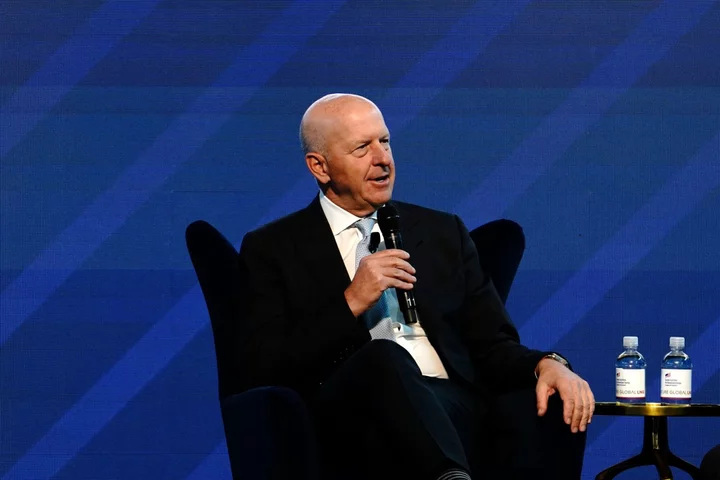Novo Nordisk A/S unveiled details from a closely watched study that support use of Wegovy, its blockbuster weight-loss drug, to cut heart attacks and strokes in obesity patients with a history of cardiovascular disease.
People taking the highest dose of Wegovy saw a drop in blood sugar levels and inflammation — two harbingers of heart disease — that help explain the 20% reduction in cardiovascular events that Novo reported in August. While none of the patients had diabetes, two-thirds started the study with blood sugar levels in the prediabetic range, which is associated with a higher risk of heart disease and death. Patients also saw significant reductions in blood pressure.
Three-quarters of patients had suffered heart attacks before the study began and a quarter had heart failure. In this highly vulnerable population, the results help cement the argument for using Novo’s drug as a heart treatment alongside statins and blood pressure therapies. Patients on Wegovy also lost weight in the trial.
The results, presented on Saturday at the American Heart Association’s annual conference in Philadelphia, are “game-changing,” Eugene Yang, the chair of the American College of Cardiology’s prevention section, said in an interview.
Heart disease is the number one killer in the US and accounts for about a third of deaths globally. While obesity is known to raise the risk for such ailments, Novo’s trial was designed to show whether Wegovy could ward off future heart attacks and strokes in people with established cardiovascular disease.
Novo said it will seek expanded US approval for reducing risk of major adverse cardiovascular events in adults with a body mass index, or BMI, of 27 or higher and established cardiovascular disease.
Read More: All About the New Obesity Drugs Causing a Big Stir
“Increasingly, physicians are understanding that this is not just about weight and appearance,” Lars Fruergaard Jorgensen, Novo’s chief executive officer, said in an interview on Friday before the details were released. “It’s about real health benefits.”
Weight-loss drugs such as Wegovy, which increased sales more than 700% last quarter, have become a phenomenon this year. Celebrities are touting their benefits, while investors handicap how much they will disrupt a wide swath of sectors that includes apparel companies, restaurants and packaged food producers. Novo is already struggling to keep up with demand. And competition is increasing with Eli Lilly & Co. just receiving approval for its weight-loss drug, Zepbound.
However, the drugs are expensive. Zepbound will cost about $1,050 for a month’s supply, which is cheaper than Wegovy’s monthly list price of roughly $1,350. The cost is a barrier to widespread access, Yang said. Based on the trial results, to prevent one heart attack or cardiovascular death, 67 people will need to be treated with Wegovy for almost three years and four months, according to a Bloomberg analysis. At list prices, this would cost $3.8 million.
Read More: The Weight-Loss Drug Frenzy Is Outrunning the Company Behind It
Along with reducing weight, blood sugar control and anti-inflammatory effects are likely what’s driving the benefit for heart disease shown in the study, Martin Holst Lange, Novo’s development chief, said in an interview. In the trial of more than 17,600 overweight and obese adults who were 45 and older, taking Wegovy lowered body weight by an average of 9.4% over two years, compared to a less than 1% loss in the placebo group. The treatment group also saw reduced weight circumference and blood pressure that’s often associated with shedding pounds.
At the same time, blood sugar fell into a healthy range in two-thirds of those treated. That was enough to ward off diabetes in about 70% of patients. C-reactive protein, a liver product that’s linked to inflammation, fell about 40% among those taking Wegovy.
Only 28% of the patients in the trial were women and just 4% were Black, meaning the results may not translate to those populations, according to the ACC’s Yang. About 17% of the patients in the trial stopped taking Wegovy due to side effects. The most common cause was gastrointestinal issues, which were responsible for most of the discontinuations.
--With assistance from Robert Langreth.









